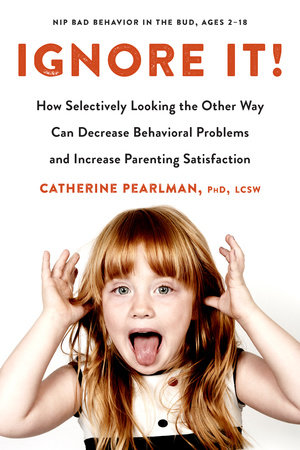Why Being a ‘Good Enough’ Parent Is Better Than Being Perfect
by Catherine Pearlman, Ph.D., LCSW
The vast majority of American parents aspire for their children to grow up to be healthy, happy, and productive members of society. To meet those goals, we (mothers and fathers) are told that all must be sacrificed. If we don’t give parenting everything we’ve got, our kids will wind up unemployed, living in our basements, and there will be no one to blame but ourselves.
That’s what I like to call the “perfect parent myth,” and it’s ruining our child-rearing experience. In striving for perfection, parents are draining their resources and energy, pushing themselves too far, and depriving kids of vital growth experiences.
The standards of perfection for parents these days are exacting. Perfect parenting expectations begin with a drug-free natural birth. Once our young are born we must breastfeed each baby for years. If we can’t breastfeed (oh, the shame!) we must at least feed on demand. We must make our own baby food and feed our children only organics in BPA-free containers. Let’s also not forget to organize our children’s days so they are engaged in educational pursuits lest they fall behind the curve. We must be involved in every aspect of our children’s schools including long hours volunteering with the PTA and serving as a class parent. There is no free time for the perfect parent; there is only unlimited devotion to our children.
These standards are untenable. They’re also nutso crazy. Parents can’t be perfect. Why? Because we’re human and so are our children. Robots would be much easier to parent. They are predictable and when they are unruly we can shut them down. Parenting is nothing like that. And yet, parents still strive for perfection, feeling that if we can’t do all of those very difficult tasks then we are not doing right by our children.
Of course, real life — one that includes work, other children, illness, financial strain, and aging parents — gets in the way. Who has the time for all this? Who has the patience? Furthermore, there isn’t much research to support these claims. In fact, there is research to support just the opposite.
The late renowned pediatrician and psychoanalyst Donald Winnicott (my savior and, quite possibly, yours) viewed parenting in great contrast to these high-achieving ideals. Through Winnicott’s eyes, perfect parenting wasn’t merely unattainable — it wasn’t desirable. Yes, infants need immediate attention and all of their needs met. But as children grow, they are better off with the “good enough” parent, one who offers the space to forge ahead with increasing independence. Our efforts to meet every single want and desire of our children can hurt them in the end, because they fail to understand that real life is full of disappointments and struggles. Learning at an early age to press on through adversity builds strengths.
A good enough parent still meets the needs of their children. But, by the parent being less than perfect, the child will need to adapt and develop skills to conquer little disappointments. Of course, this doesn’t mean we leave kids on the side of the road when they begin elementary school and wish them good luck in life. No, we still have to parent. It just means there is flexibility and room for real-life mistakes and limitations to our parenting abilities.
That’s a relief.
So, how can parents be merely good enough? Here are four ways to make sure you aren’t trying to be perfect.
- Give yourself a break. If you are having a bad day take a shortcut. An extra episode of “PAW Patrol” or store-ordered pizza for dinner never kept a child from heading off to college.
- Don’t worry so much about what other parents are saying or doing. Do what is right for your family. It will be good enough.
- Cut your children a break. They aren’t perfect either. Trying to hold them to that standard will do more damage than good.
- Ignore minor annoyances and misbehavior in your children. Selectively looking the other way will give parents a break from the never-ending power struggle and give children space to learn to improve their own behavior.
For more information about the benefits of “good enough” parenting, check out Dr. Catherine Pearlman’s new book, Ignore It!.

